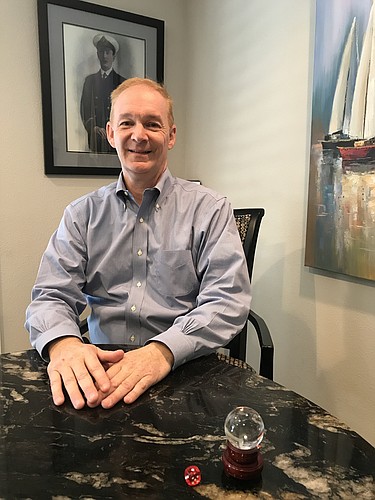- April 19, 2024
-
-
Loading

Loading

In the 1990s and early 2000s, the Terri Schiavo case captured the nation’s attention. She was a woman who fell into a persistent vegetative state, essentially a coma, after her brain was deprived of oxygen for too long when she collapsed in her St. Petersburg home. It was 1990. She was 26.
By 1993, her husband was ready to remove care and let Schiavo go. He said she wouldn’t want to live that way. Her parents, convinced she could eventually make a recovery, weren’t ready. For the next 15 years, they battled in courtrooms over what to do.
In 2005, after litigation sparked a national conversation and input, Schiavo’s feeding tube was removed and she died. On her grave, her husband wrote “I kept my promise.”
The Schiavo case may seem out of the ordinary, but elder law attorney Kevin Pillion, of the Life Planning Law Firm in Sarasota, said people need to consider it.
“It’s often the people who don’t have it that really need it,” he said.
By “it,” Pillion is referring to documents that prepare for your end-of-life care, whenever or whatever that may be.
Legal, financial and health care documents need to be drawn up in advance because, he said, none of us has a crystal ball that can tell us when and how we’ll die.
We could be injured in a car crash tomorrow. We could go to the doctor for a routine check-up and be diagnosed with a terminal illness, with several months or years still ahead of us. We could fall into a persistent vegetative state and remain unresponsive for more than a decade.
Rather than dwelling on the how or when, it’s best to not procrastinate and be prepared. A big part of that is having documents in order that give relatives, friends and caregivers instructions on what your wishes would be and identifies people who should speak for you if you can’t.
“Doing nothing is actually doing something, isn’t it?” Pillion said. “Because if you don’t do your documents, and you don’t make your wishes known, you have made a decision by default that you would like to get the courts involved and possibly entertain a guardianship.”
While most people have a will, Pillion said that only goes into effect after you die. End-of-life planning is for that uncertain time at the end of your life, when you may not be able to make your own decisions.
Additionally, Pillion recommends you have several plans in place for your care — short term, midterm and long term. These plans should look at where you need to be, what you can afford or if you need to tap public benefits.
Lastly, Pillion recommends going to a lawyer who specializes in either elder law or life planning law as you begin the process.
If you don’t have plans in place, a court could appoint someone to make decisions about what’s best for you, without your say.
“I’m going to assume that everyone wants to make their own decisions,” he said.